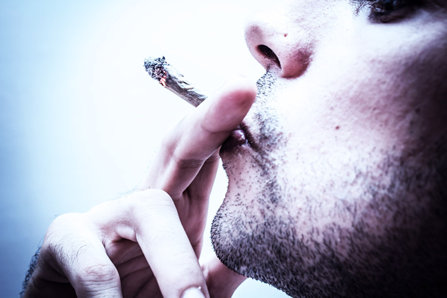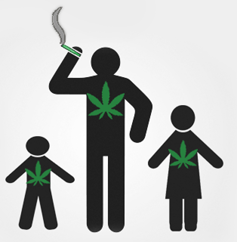Should Parents be Tolerant of Marijuana Use by Teens or Young Adults?
One thing is for sure: There is plenty of confusing information circulating about marijuana. One faction claims it’s harmless and even medicinal. The other faction holds the opinion that this drug is dangerous in many ways. Caught in the middle are our young citizens. Teens and young adults can hardly be blamed for thinking the substance is benign. Should parents just give in and let youth do what they want?

When pro-marijuana lobbyists endlessly repeat all the arguments in favor of use of this drug, any person—young or not so young—has all the ammunition needed to reject any objections parents or other family might make. It’s easy to find these arguments because that’s the side the money is on. There’s investors and entrepreneurs lined up from your town to Wall Street, prepared to make a killing on this expanding industry. How true are these arguments? Analytical tools like surveys and statistics can help one decide.
Numbers from an Annual National Survey
This year’s National Survey on Drug Use and Health provides a look at the effects of this drug on our society. This is an annual survey that measures drug use, alcohol abuse, addiction and treatment statistics. Released in November 2016, here’s some highlights.
- There are 22.2 million current marijuana users aged 12 and older. And there are users starting younger than 12 who will not show up in this number.
- In the U.S., 1.3% of the population is using so much marijuana that they are causing themselves harm or they are addicted.
- Marijuana is most frequently used by those aged 18 to 25. In this group, nearly one in five persons has used the drug in the last month.
- And despite the fact that it is nowhere legal for those under 18 to use this drug, one in 14 is a current user.
Recent Reports on Adverse Effects
Smoking marijuana before drinking alcohol can greatly increase intoxication, increase the risk of having an accident when driving and even ups the chances of alcohol poisoning (pot suppresses the body’s ability to vomit away excessive alcohol consumption). Alcohol in the blood can cause a person to absorb THC faster. Used together, it becomes far more difficult for a person to look after their own well-being and make rational decisions.
Marijuana lobbyists will admit that one in 11 adults who begin smoking marijuana will become addicted but they gloss over the fact that for teens, it’s one in six.

A new study published in Pediatric Research looked at the impact of secondhand smoke on children under two years of age. The study found that measurable amounts of THC and the products of THC can be detected in children’s blood when it’s used in the household.
Edibles present their own unique dangers. It can take two full hours for the full effects of edibles to be felt. Since a person new to edibles has no experience with the long delay, it’s very common for them to overdose, which can result in effects like oversedation, intense anxiety and even psychosis. In light of this effect, it is no surprise that tourists visiting Colorado to sample cannabis products are arriving in emergency rooms in increasing numbers.
Socially, the marijuana business is attracting problems like an influx of homeless, transient, aging, disabled, sick and psychiatrically-disabled people who want unrestricted access to marijuana. The volume of these people are straining social services, causing some communities to reject cannabis businesses.
Daily Use
Daily use of marijuana can result in violent vomiting and stomach pain that goes on for days and is only relieved by hot baths or showers. It’s called cannabinoid hyperemesis syndrome. The cure is quitting marijuana use—something devoted cannabis consumers often don’t want to hear. Doctors are gradually getting familiar with this relatively new discovery.
More parents are coming forward with stories about their children who started smoking marijuana and ultimately took their own lives. You can find these stories here and here and make your own decision.
A study from a few years ago outlined the exact mental deficiencies caused by the drug. The list runs like this: impairment of “cognitive functions on a number of levels—from basic motor coordination to more complex executive function tasks, such as the ability to plan, organize, solve problems, make decisions, remember, and control emotions and behavior.” These are all vital abilities if one is to live a successful life of his own choosing.
Parents Must Make their Own Decisions
The only solution to this dilemma is to study both sides and make your own decision. But remember this: If a person is visibly damaging his (or her) life through drug or alcohol abuse and won’t acknowledge it, or if he sees the harm and wants to quit and can’t manage it on his own, effective drug rehab can return his life to his own control.
It’s never an easy situation when a loved one has begun to rely on a substance to get through life. The key to knowing what to do about it is looking at the facts and not being swayed by well-financed ad campaigns launched by those who wish to make millions, even if customers have to suffer harm as a result.


 ®
®